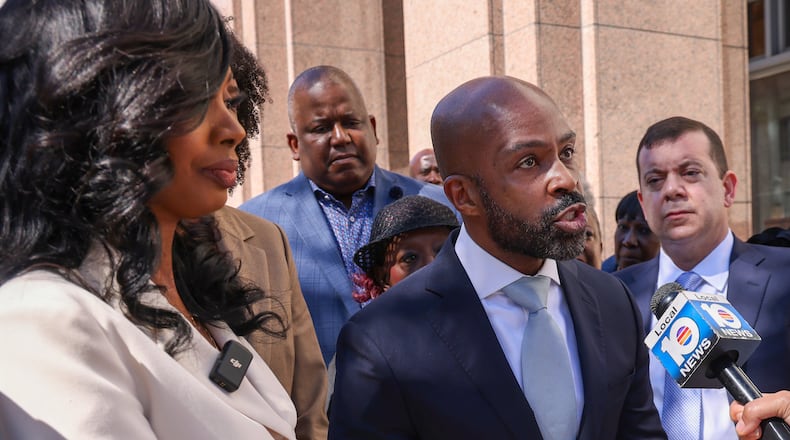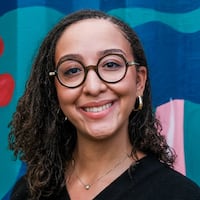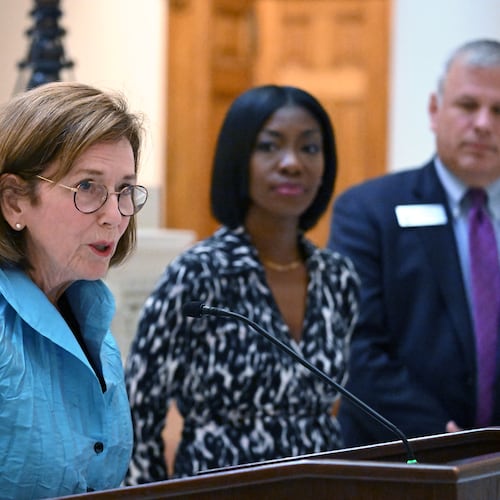The CEO and co-founder of the Fearless Fund, Arian Simone, said Monday the group wants President Biden to issue an executive order to protect “the right to fund specific marginalized groups” in light of a recent court ruling against the Atlanta-based venture firm. Simone also wants Congress to pass a law backing up the proposed order.
Her position follows a federal appeals court panel ruling last week that a grant for Black female businessowners run by the nonprofit arm of Fearless Fund likely violated the federal Civil Rights Act of 1866, throwing into question the future of diversity, equity and inclusion (DEI) programs.
In a 2-1 ruling, a three-judge panel from the 11th U.S. Circuit Court of Appeals also found Fearless was unlikely to enjoy First Amendment protection and that its program inflicts irreparable harm on the plaintiffs, an anonymous group of three white and Asian women.
The ruling is the latest in a string of court decisions against equity-focused business programs since the Supreme Court struck down affirmative action in college and university admissions.
Fearless Fund was founded in 2019 in Atlanta by three Black women to invest in women of color, a demographic that receives less than 1% of venture capital funding. It also has a nonprofit arm, the Fearless Foundation, that administered the grant at the heart of the lawsuit.
The Fearless Strivers grant contest gave $20,000 grants to Black female businessowners but the conservative group American Alliance for Equal Rights alleged the grant was racially discriminatory because only Black women were eligible. Last week, the appeals panel sided with the Alliance and issued a preliminary injunction against the grant.
Simone is now asking the federal government to intervene.
“Our ask is for an immediate Executive Order by the President of the United States to protect DEI & the right to fund specific marginalized groups if and when racial disparities exist. And for Congress to issue the Fearless Freedom Civil Rights Act, an Act that supports this executive order,” she wrote on Instagram.
The Atlanta Journal-Constitution spoke with Alphonso David, president and CEO of the Global Black Economic Forum and co-counsel to the Fearless Fund, about the potential implications of the recent ruling and Fearless’ next steps. This interview has been edited for length and clarity.
Q: What was your first thought when you heard the appeals panel had ruled against Fearless?
A: Disappointed and perplexed. We live in a country that professes to embody principles of fairness and equity. And we have a constitution that seeks to provide a level playing field, or at least promises to provide a level playing field for all citizens. We also live in a country that has not been able to effectively address the history of slavery and bias and discrimination, and the vestiges of slavery that we continue to live with today. So, reading that decision was incredibly disappointing because the practical reality remains the same … There is a significant disparity in funding for Black and brown entrepreneurs and businessowners in this country.
Q: What do you think the potential effects of the ruling could be?
A: What the plaintiffs in our case have been seeking to do is create a chilling effect across this country and maybe beyond that, where people are afraid to invest with Black businesses. They’re afraid to invest in programs that advance equity. And I think this 11th Circuit ruling could just exacerbate this problem where people feel a little skittish about supporting diversity and equity and inclusion programs, whether it be in the charitable space or in the private sector.
Q: What impact do you think this could have on philanthropy?
A: This decision for me amplifies what I see as a blatant hypocrisy within the world of philanthropy. Charitable organizations have been issuing grants to specific demographic groups for decades. And this is the first time that a federal court is stopping an organization from issuing grants to a specific demographic group, issuing grants consistent with their mission.
The implications for this decision, if it were to be applied within the philanthropic space broadly, are immense because it essentially redefines grantmaking. It essentially says you can’t issue grants to people of specific demographic groups, which we know is counter to what philanthropic groups have been doing for decades.
Q: So, while the scope of the ruling is limited in the corporate space, it can be applied pretty broadly in the philanthropic space?
A: Absolutely.
Charitable organizations are protected under the First Amendment to issue grants consistent with their missions and this has been a long-standing principle that had been applied and amplified and endorsed by advocates, lawyers and investors of all ideological stripes.
Q: Does the decision apply only to foundations that exist within this jurisdiction?
A: Correct.
Now, we understand that other courts may potentially use this decision in other cases … We have to wait to see the true application for this decision ... and we’ll be able to evaluate its impact in the future.
Q: What are Fearless’ next steps in this case now?
A: We are evaluating all options, and we will be making a decision and speaking publicly in the future about what steps we will end up taking.
As we look at this case, I want people to understand this is not about two women, it’s about all of us who are fighting to get to that place that we call equity. We’re so far from it and we have to continue fighting for it.
The Atlanta Journal-Constitution and Report for America are partnering to add more journalists to cover topics important to our community. Please help us fund this important work here.
About the Author
Keep Reading
The Latest
Featured



